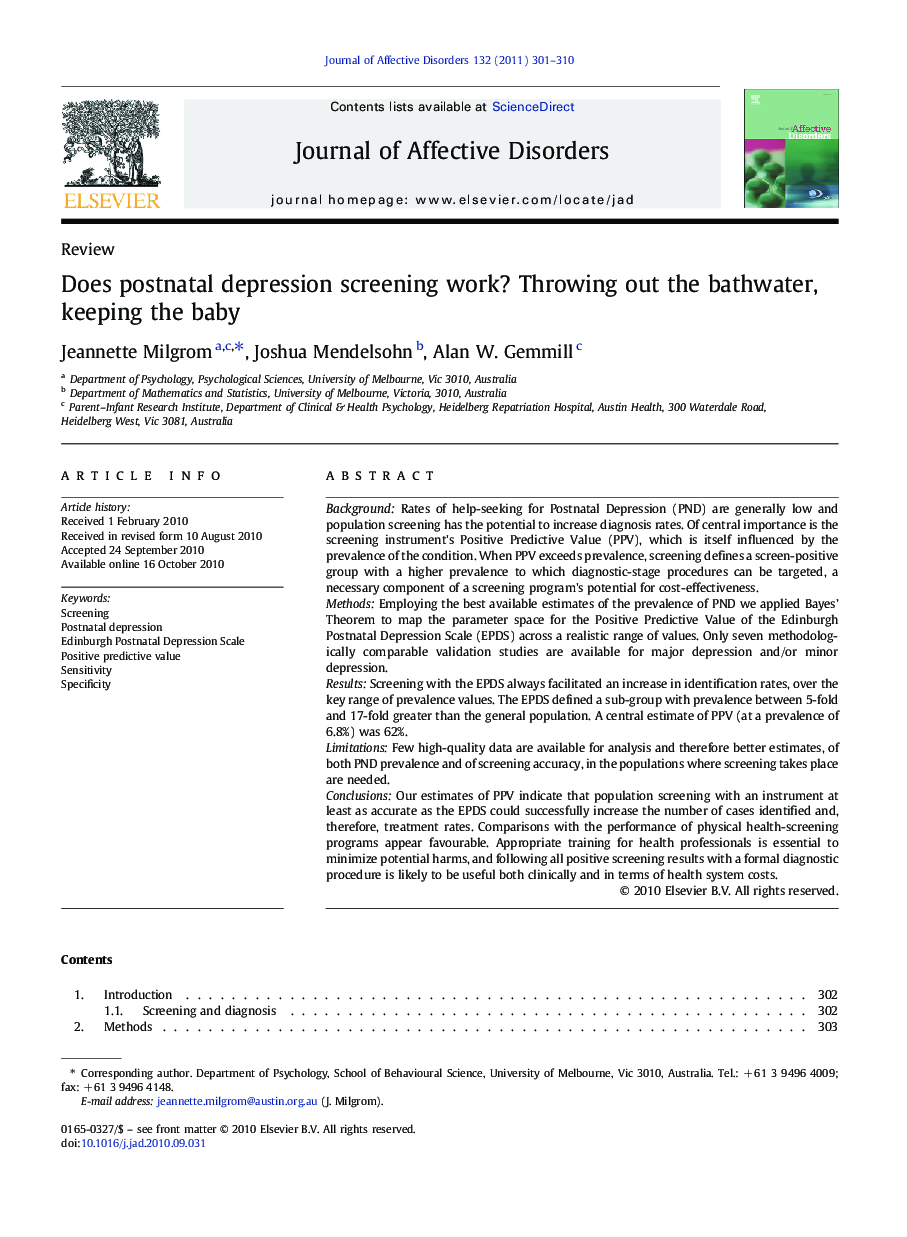| Article ID | Journal | Published Year | Pages | File Type |
|---|---|---|---|---|
| 4186448 | Journal of Affective Disorders | 2011 | 10 Pages |
BackgroundRates of help-seeking for Postnatal Depression (PND) are generally low and population screening has the potential to increase diagnosis rates. Of central importance is the screening instrument's Positive Predictive Value (PPV), which is itself influenced by the prevalence of the condition. When PPV exceeds prevalence, screening defines a screen-positive group with a higher prevalence to which diagnostic-stage procedures can be targeted, a necessary component of a screening program's potential for cost-effectiveness.MethodsEmploying the best available estimates of the prevalence of PND we applied Bayes’ Theorem to map the parameter space for the Positive Predictive Value of the Edinburgh Postnatal Depression Scale (EPDS) across a realistic range of values. Only seven methodologically comparable validation studies are available for major depression and/or minor depression.ResultsScreening with the EPDS always facilitated an increase in identification rates, over the key range of prevalence values. The EPDS defined a sub-group with prevalence between 5-fold and 17-fold greater than the general population. A central estimate of PPV (at a prevalence of 6.8%) was 62%.LimitationsFew high-quality data are available for analysis and therefore better estimates, of both PND prevalence and of screening accuracy, in the populations where screening takes place are needed.ConclusionsOur estimates of PPV indicate that population screening with an instrument at least as accurate as the EPDS could successfully increase the number of cases identified and, therefore, treatment rates. Comparisons with the performance of physical health-screening programs appear favourable. Appropriate training for health professionals is essential to minimize potential harms, and following all positive screening results with a formal diagnostic procedure is likely to be useful both clinically and in terms of health system costs.
